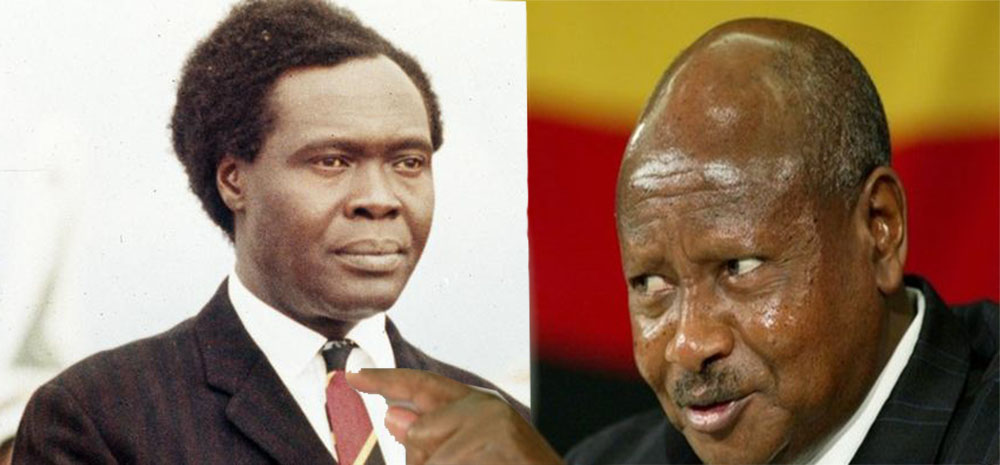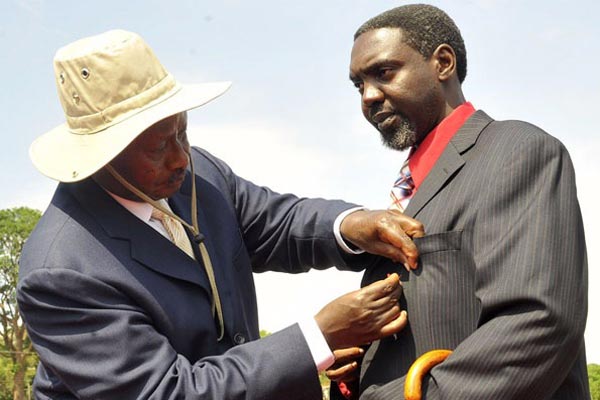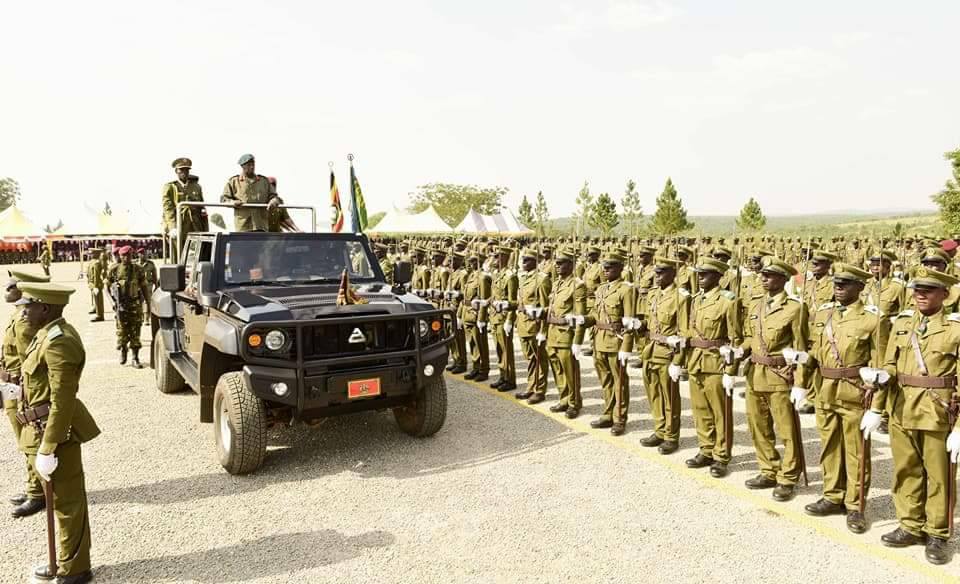
It’s a cloudy Monday, I happen to fail to keep track of time, but on checking my silver coated watch, Oh My God! It’s already 6:20 PM the only thing that dashed in my minds was how I will go through the Kibuye – Clock Tower traffic jam along Entebbe road. I immediately entered the small Insider office car, to find my way back home on time. I patiently drove and in a few minutes later, it started drizzling. This seemed to be like a wakeup to all the people in the city to find their routes back their places of residence instead of looking for shades were to seek refugee till when the ran stops.
Cars both private and government, big or small, boda boda, bicycles and pedestrians stalwartly stormed the sparkling rain and traffic jam something I had earlier prayed not to find on my way topped the agenda of journey back home.
At about 07:10, I saw a notification from my You tube account recommending a certain clip for me watch. This was non other than one of the last Interviews Dr. Apollo Milton Obote had with the BBC as the president of Uganda a head of the general election.
In this 14 minutes audio bearing Obote’s feature picture, Uganda’s first Prime Minister and subsequently President, is quoted saying that he has brought a tremendous change in the country, citing that the economy is progressing, the politics is stabling, transport, health system is improving and people are moving freely with no disappointment whatsoever in Uganda.
On speaking about President Museveni’s war fare in the Luwero district, Northwest of Kampala City, Obote revealed that he is not determined to carry any military victory but only focused at stabilizing the Pearl of Africa.
“The platform to which my party was elected for was to bring peace to the people of Uganda, whoever is in the bush is a criminal and we are going to deal with them because its against the laws of Uganda.” Obote said.
He added that he can’t sit on a round table with General Yoweri Kaguta Museveni and his National Resistance Army (NRA) because the issue of leadership is not a personal matter between him and the ‘rebels’ then.
“This is not a personal matter between me and Museveni whatsoever, it’s a constitutional matter, we have done elections, we have parliament, we have laws of Uganda, the Constitution and the high court. If there political differences, let them be settled politically. One way of settling political differences is elections and another way is to go the court. I am not going to deceive people of Uganda that someone who loses an election should be accommodated in any administration.” He noted.

Obote says he can’t tolerate political dialogue because it’s not accommodated in the constitution claiming that negotiating with a criminal creates a precedent that even when the second person who is hungry for power shall also go to the bush again the same government will have to call for a meeting, the third, fourth and fifth person shall also go in the same spirit.
BBC to Obote; What do you think Museveni wants, do you think he wants a Job in this government?
I really don’t know what Museveni wants, if I knew I would be very happy. Museveni was a member of the military commission and surprisingly number two. Him and the rest of the members of the military commission organized elections but soon after elections, he decided to fight. He is ineffective, not known and he is a refugee himself in another part of Uganda.
Don’t you think that negotiating with Museveni would create peace, save time, resources of this country among others?
Why do you think Museveni is so important in this country? First of all he is not a citizen, he is a gunman! Its not a while to talk about the Robin hoods and terrorists of this country? Whether it’s the church or opposition calling for talks, I shall not allow that to happen because this is an election issue not a personal matter.
Obote then refused to answer more questions regarding president Museveni wondering why the BBC reporter was not asking him about the peaceful western, Northern and Eastern regions other than wasting time on Luwero and its rebels.
He says he is confident that he was going to overwhelmingly win the general election because he does not see another party much more organized than the Uganda People’s Congress (UPC). He says his government has done a lot of work and stabilized from the 1980 mess where everything was declining.
What happened after this?
After a disputed election brought Milton Obote (at right) to power in Uganda in 1980, one of his opponents, Yoweri Museveni, led an armed resistance against the government. The subsequent Ugandan “Bush War” between Museveni’s National Resistance Army (NRA) and the government’s Uganda National Liberation Army (UNLA) lasted from 1981 to 1986.

In 1983, ethnic tensions began to fracture the UNLA. President Obote, an ethnic Lango, was accused of favoritism at the expense of the Acholi, who mostly comprised the officer corps. After confronting Obote with these and other complaints, General Tito Okello staged a coup d’état with the help of a group of Acholi. Okello ousted Obote and installed himself as president on July 27, 1985. Okello was later ousted by Museveni and the NRA six months later.
Jan 29, 1986: Museveni sworn in as 8th President of Uganda. In his inaugural speech, he says his ascent to power is not a mere change of guard, but a fundamental change. He also promises to establish democracy and attacks the lavish lifestyle of past leaders, who led poor people.
“We want our people to afford shoes. The honourable Excellency who is going to the United Nations in executive jets but has a population at home of 90% walking barefoot, is nothing but a pathetic spectacle.”
Museveni introduced the Movement system of politics – described as a broad-based, alternate system of democracy in which people compete for political office on individual merit. Mr Museveni argued that political party activity split underdeveloped countries like Uganda along ethnic and religious lines. Over the next 10 years, Mr Museveni became a darling of the West.
Uganda’s economy began to grow steadily and saw annual average annual growth of over 5%. Its commitment to tackle poverty was hailed.
Primary school education enrolment doubled, HIV levels dropped because of an impressive anti-Aids campaign spearheaded by the president among other achievements.

1 Comment
Hahahaha, loughable, this “Mucebeni” man has actually done WORSE than all the preious Presdos, ell leaders in Top positions are his relatives apart from Doris Akopl and Betty Amongi!